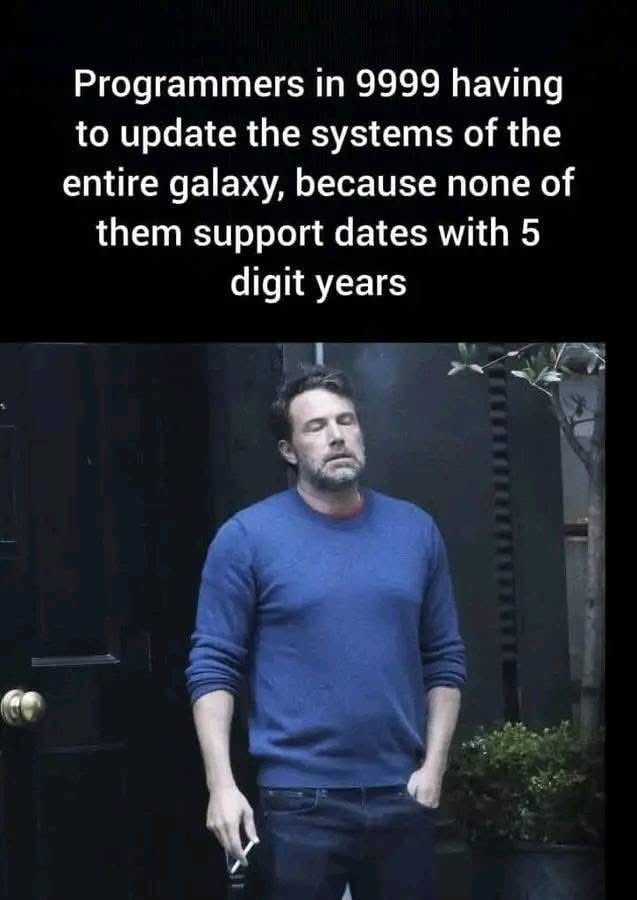this post was submitted on 18 Dec 2024
1101 points (98.3% liked)
memes
10666 readers
1956 users here now
Community rules
1. Be civil
No trolling, bigotry or other insulting / annoying behaviour
2. No politics
This is non-politics community. For political memes please go to [email protected]
3. No recent reposts
Check for reposts when posting a meme, you can only repost after 1 month
4. No bots
No bots without the express approval of the mods or the admins
5. No Spam/Ads
No advertisements or spam. This is an instance rule and the only way to live.
Sister communities
- [email protected] : Star Trek memes, chat and shitposts
- [email protected] : Lemmy Shitposts, anything and everything goes.
- [email protected] : Linux themed memes
- [email protected] : for those who love comic stories.
founded 2 years ago
MODERATORS
you are viewing a single comment's thread
view the rest of the comments
view the rest of the comments

Well, I looked at a Year 10000 problem less than 2 hours ago. We're parsing logs to extract the timestamp and for that, we're using a regex which starts with:
So, we assume there to be 4 digits for the year, always. Can't use it, if you live in the year 10000 and beyond, nor in the year 999 and before.
Just start over at year 0000 AT (after ten thousand)
The ISO time standard will certainly need to be redone
Do you think so? Surely, it's able to handle dates before the year 999 correctly, so I'd also expect it to handle years beyond 10000. The
\d{4}is just our bodged assumption, because well, I have actually never seen a log line with a year that wasn't 4 digits...Kinda?
Oh wow, I really expected the standard to just say that however many digits you need are fine, because you know, maths. But I guess, this simplifies handling all kinds of edge cases in the roughly 7975 years we've still got.